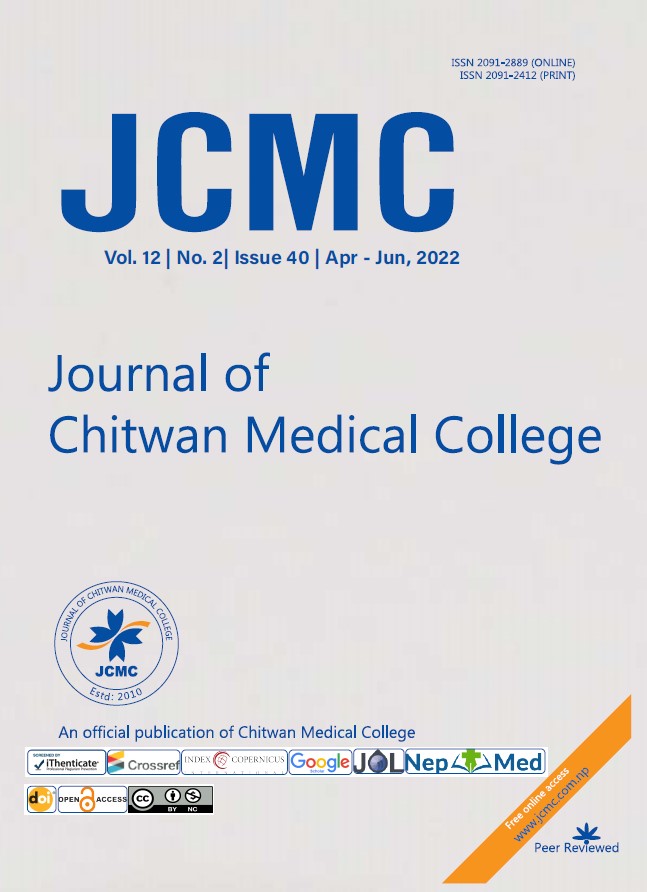SELF-CARE MANAGEMENT AND ITS ASSOCIATED FACTORS AMONG PATIENT WITH HYPERTENSION IN NEPAL
Keywords:
Self-care management, Hypertension, Social supportAbstract
Background: Hypertension is currently a common and serious health issue that leads to cardiovascular disease and premature death around the world. Self-care practice is essential for blood pressure control and reduction of hypertension complications of cardiovascular and renal diseases. The objective of this study is to assess the level of self-care management and its associated factors among patients with hypertension.
Methods: The cross-sectional study was conducted at the Internal medicine and Cardiac outpatient department of Kathmandu University Hospital, Dhulikhel on 386 participants diagnosed with hypertension with six months of diagnosis and age of 30-80 years. The participants were recruited conveniently in the study. Face to face interviews with participants using Hypertension Self-Care Profile (HTN-SCP) and Multidimensional Scale of Perceived Social Support (MSPSS) were used to assess self-care management and perceived social support. Descriptive and inferential statistics were performed using SPSS version 23.
Results: The mean age of the participants was 57.39 years. Half of the participants (52.3 %) had poor self-care practice. There is significant association between level of self-care practice with religion (p= <0.001), educational level (p= <0.001), area of residence (p= 0.001), income (p=<0.001) and perceived social support (p= 0.001).
Conclusions: The present study revealed that half of the participants had poor self-care practice. Based on the results, the study concluded that good self-care practices and social support influence better self-care practice among hypertensive patients which may eventually help to prevent complications in the coming future.





